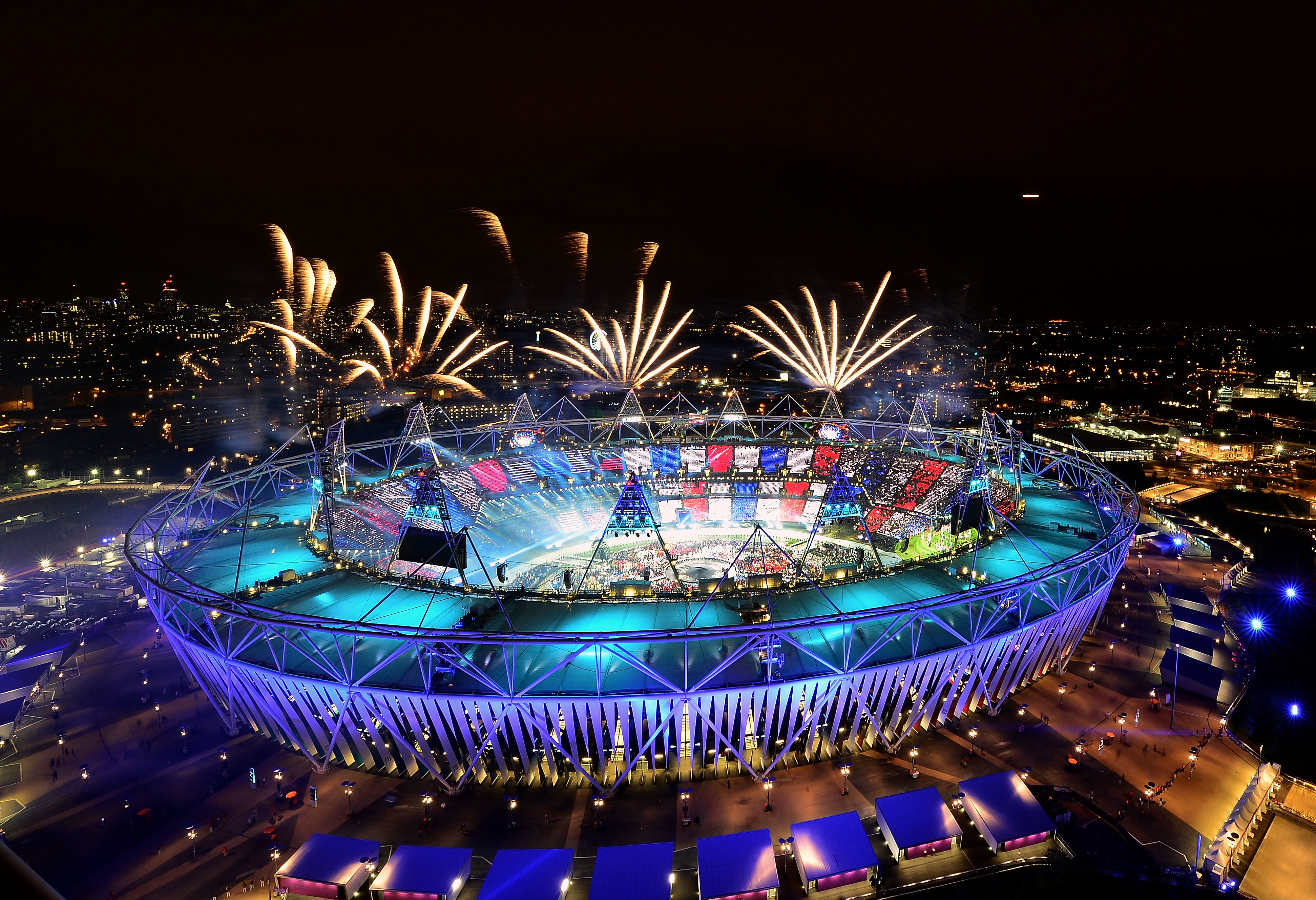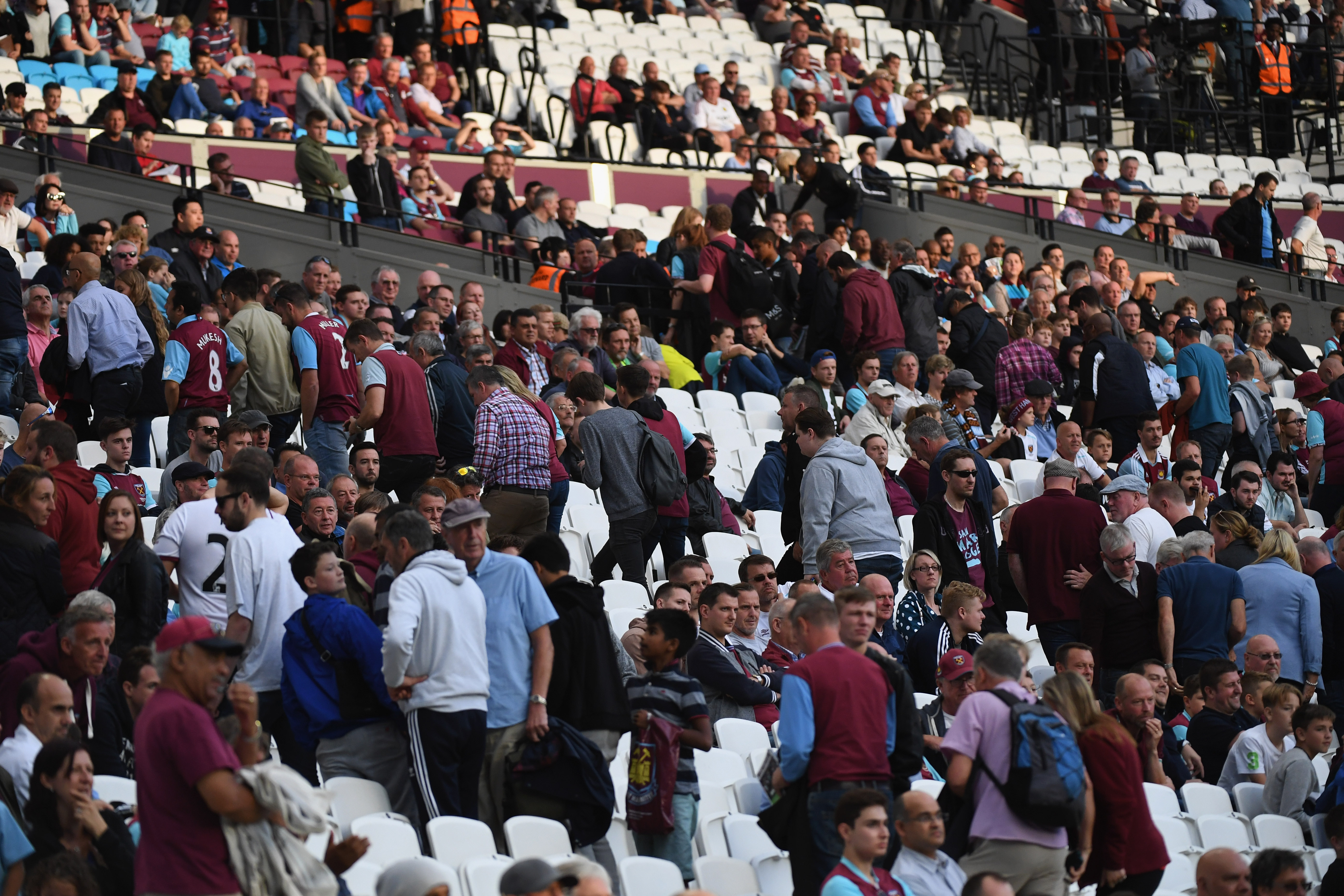Who could have anticipated that the best thing about West Ham’s season so far would be that the supporters are so far from the pitch and therefore denied a closer view of all that is going wrong?
It was, of course, supposed to be one of the things wrong with the London Stadium, but right now it offers a little bit of comfort to the increasingly angry West Ham fans that they may not be able to see things as they once they did at the lost paradise of Upton Park.
The move to the Olympic Stadium has been a textbook example of how to alienate everyone, even when it looks like you’re pulling off the deal of the century.
It is also important to note that West Ham’s problems can’t be blamed entirely on the move to a new stadium, not when they defend as they did against Southampton on Sunday, not when, as Mark Noble has said, they could have played all night and not scored.
Noble described West Ham’s defending as “laughable” and that is not the fault of the new stadium, but the players and manager.
But the hostility and poor atmosphere hasn’t helped, especially as it wasn’t supposed to be this way.
This was a deal and a stadium designed to move West Ham into the big-time. This was the move to change everything, but so far all it has illustrated is that, even in modern football with its ideas about penetrating new markets, the most important people at a football club are the supporters.
Hahahaha pic.twitter.com/R1Le1uAL1m
— GeorgeWeahsCousin (@WeahsCousin) September 25, 2016
West Ham may have felt they were entering a brave new world. They were perfectly located to draw in new supporters. The Olympics had ensured the stadium was easy to get to and the development of East London guaranteed there would be a willing audience of new supporters or, as West Ham referred to them at the weekend, “customers”.
Yet, as any band who makes it will tell you, when you enter the big time, sometimes you meet resistance from the fans who were there for the difficult times, especially if you start talking about customers when the old supporters believed they were something more important than that.
There is a valid defence that without a football club as a tenant the Olympic Stadium would have become a monument to a wonderful summer, but a decaying one, a place where people went to return to the spirit of 2012, but looked on wistfully as the tumbleweed drifted by.
“We built a stadium that was built by a number of very arrogant people that had no foresight for the future. They built a ridiculous stadium but we have made the best of it,” David Gold said in May.
When West Ham secured a deal that saw them pay £2.5 million a year in rent, many complained that it wasn’t right for taxpayers to be taking on so much of the cost while the club benefitted.
David Gold might have had a point when he asked, “How many people are going to watch the world championship hop, skip and jump?”
Football was the only show in town and those who wanted to be tenants knew it, unfortunately they have not managed the transition well.
Rightly or wrongly, the difficulties look like being portrayed as a culture war: the old supporters who loved the club, who spent many happy and unhappy hours at Upton Park among like-minded people versus the new customer who wants to sit down and enjoy the afternoon’s entertainment, such as it is.
The ugliness that came to the fore during the defeat to Watford may alienate the casual customer who is thinking of heading along. But West Ham have sold more than 50,000 season tickets so it is finding a way of making these people happy that matters.
A winning team is the easiest way to do that, but the atmosphere around the club is making that more difficult.
West Ham have dismissed the reports that they were piping crowd noise through the pa system which is juts as well considering that, if they were to be accurate at the moment, they’d have to get the sound effect that captured a mood of mass disgruntlement.
Perhaps, West Ham couldn’t believe their luck. Their farewell night to Upton Park lacked imagination and whatever measures they put in place to manage the transition have failed to blend the old with the new.
While other clubs who have moved to new stadiums have to cope with the sense of newness and feeling that it is not the same as the old place, usually it is still their place.
West Ham’s move has gone further and the atmosphere is not one of coolness and ambivalence, but hostility and resentment which is affecting all they are trying to do.
The fact that these feelings seem to be mirrored on the pitch is the most worrying factor of all. There is more focus on the club because of their move and the poor start has added to the pressure on players who seem unprepared for it.
Their fourth league defeat in a row has added to the sense of crisis and division.
West Ham pulled off the deal of the century, but right now they don’t look ready for the big time.








































